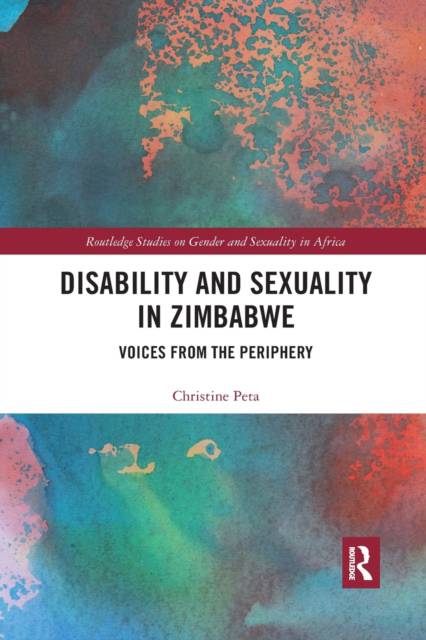
- Retrait gratuit dans votre magasin Club
- 7.000.000 titres dans notre catalogue
- Payer en toute sécurité
- Toujours un magasin près de chez vous
- Retrait gratuit dans votre magasin Club
- 7.000.0000 titres dans notre catalogue
- Payer en toute sécurité
- Toujours un magasin près de chez vous
Description
Disabled women represent one of the most marginalised minority groups in the world, hence they are largely silent while their sexuality is ignored, suppressed, forbidden and buried underneath the carpet. Until recently, most of the Global Northern published literature on the subject of the sexuality of disabled women has predominantly been constructed from hearsay and second-hand narratives in studies which draw from the perspectives of parents, service providers and advocates, without much consultation of the relevant women. By facilitating the voice of disabled women in Zimbabwe and illuminating their experiences of sexuality, this book hopes to shift the experiences of sexuality of disabled women from the periphery of society to the fore.
Disability and Sexuality in Zimbabwe presents original research on an issue that is thus far not found in local research data. Whilst addressing the paucity of literature on the subject, the book informs policy and practice and enhances the existing body of knowledge by making recommendations towards the development of a disability and sexuality framework that is rooted in the African context.
This book is of interest to students and scholars of African studies, disability studies, sociology, psychology, social work, nursing, education studies, geography, women's and gender studies and interdisciplinary studies. Additional audiences include a wide range of health, social care, and educational professionals and practitioners, as well donors, disabled people's organisations, charities, government departments, NGOs, supranational organisations, and policy makers
Spécifications
Parties prenantes
- Auteur(s) :
- Editeur:
Contenu
- Nombre de pages :
- 210
- Langue:
- Anglais
- Collection :
Caractéristiques
- EAN:
- 9780367594213
- Date de parution :
- 14-08-20
- Format:
- Livre broché
- Format numérique:
- Trade paperback (VS)
- Dimensions :
- 150 mm x 226 mm
- Poids :
- 362 g

Les avis
Nous publions uniquement les avis qui respectent les conditions requises. Consultez nos conditions pour les avis.






